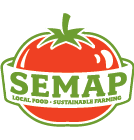It’s no secret that farmland in New England is hard to come by: it’s scarce, it’s segmented, and it’s expensive. We are now presented with the opportunity to change that!
In the early 1970s, Massachusetts General Law 61A was enacted in an attempt to ease burdens on farmers and remedy expensive, inaccessible farmland. Under this law, which hasn’t been altered since its adoption, certain farmland is eligible for lower property taxes. If a farmer holds more than five contiguous acres of active farmland under this policy, the valuation of their land is based on the profitability of the crop being grown there. Crop-by-crop valuation is evaluated annually and can be found here. In most cases, this valuation is lower than that of residential- or commercially-zoned land, reducing the farmer’s property taxes and making farmland more accessible.
However, in the years since the creation of 61A, agricultural landscapes have changed. With commercial and residential development, farmland has been broken up, often into parcels smaller than five acres. Today’s farms often operate on multiple non-contiguous fields. Additionally, cities – which typically have smaller lots and higher land values and property taxes than rural areas – have become home to community gardens and urban farming operations. Land costs have been among the largest barriers to increasing farmland in Massachusetts, and thus to strengthening local food economies.
Legislators, farmers, and activists would like to change that. State Representative Paul Schmid (D-8th Bristol) has introduced a bill (H.91) that would reduce minimum acreage for 61A eligibility. In rural and suburban areas (fewer than 50,000 residents), farmers holding at least two acres of land would become eligible; in urban areas (greater than 50,000 residents), minimum acreage would be adjusted to 0.25 acres.
“Farming has changed in the 50 years since we adopted this program, and so I think the rules ought to change, too.”
– Westport farmer and State Rep. Paul Schmid (8th Bristol)
Farmers of all types would benefit from this proposed bill, which will require a change to Massachusetts’s constitution. Especially here in southeastern MA, where land is almost always sold in small parcels, H.91 would make farmland more affordable, and with rising interest in local food systems due to the COVID-19 pandemic, this is crucial.
Currently in the Joint Committee on Revenue, H.91 will be voted on in that committee by the end of April. If successful there, it will move on to a vote by the whole legislature next year. This is where you come in! Legislators need to hear your supportive voices. Find your state legislators here, then call or email them to voice your support for H.91. This is especially urgent if your legislator is on the Joint Committee on Revenue, but all state legislators should hear about the value of this bill for MA’s farming communities. In just 5 minutes, you could contact your state representative and senator, ask 2 friends to do the same, and make a real difference in the future of Massachusetts agriculture!
We will do our best to update this post as we learn more about this bill’s progress and public hearing opportunities, but our friends at Massachusetts Farm Bureau are the best resources for the most current information on 61A and H.91.

